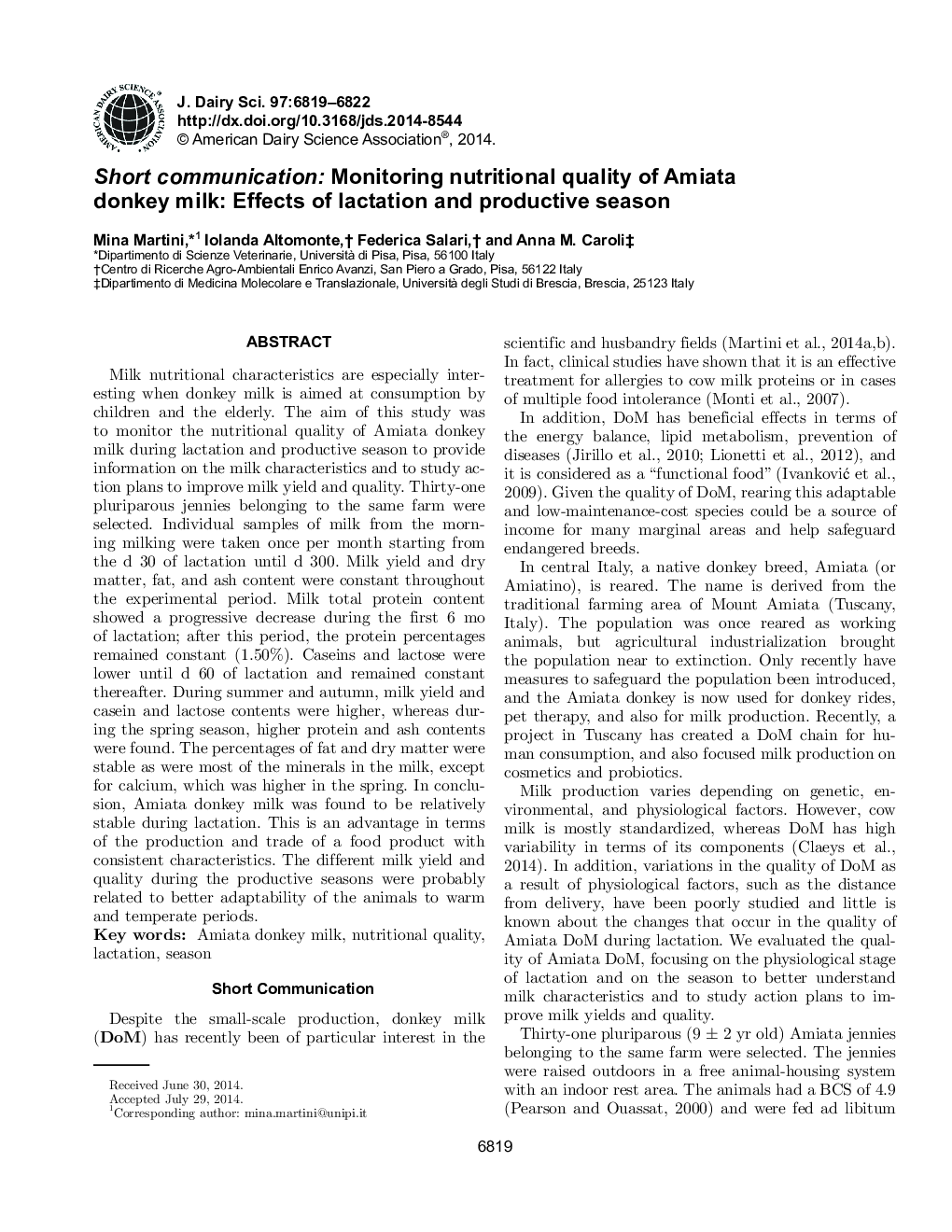| Article ID | Journal | Published Year | Pages | File Type |
|---|---|---|---|---|
| 10976883 | Journal of Dairy Science | 2014 | 4 Pages |
Abstract
Milk nutritional characteristics are especially interesting when donkey milk is aimed at consumption by children and the elderly. The aim of this study was to monitor the nutritional quality of Amiata donkey milk during lactation and productive season to provide information on the milk characteristics and to study action plans to improve milk yield and quality. Thirty-one pluriparous jennies belonging to the same farm were selected. Individual samples of milk from the morning milking were taken once per month starting from the d 30 of lactation until d 300. Milk yield and dry matter, fat, and ash content were constant throughout the experimental period. Milk total protein content showed a progressive decrease during the first 6Â mo of lactation; after this period, the protein percentages remained constant (1.50%). Caseins and lactose were lower until d 60 of lactation and remained constant thereafter. During summer and autumn, milk yield and casein and lactose contents were higher, whereas during the spring season, higher protein and ash contents were found. The percentages of fat and dry matter were stable as were most of the minerals in the milk, except for calcium, which was higher in the spring. In conclusion, Amiata donkey milk was found to be relatively stable during lactation. This is an advantage in terms of the production and trade of a food product with consistent characteristics. The different milk yield and quality during the productive seasons were probably related to better adaptability of the animals to warm and temperate periods.
Keywords
Related Topics
Life Sciences
Agricultural and Biological Sciences
Animal Science and Zoology
Authors
Mina Martini, Iolanda Altomonte, Federica Salari, Anna M. Caroli,
